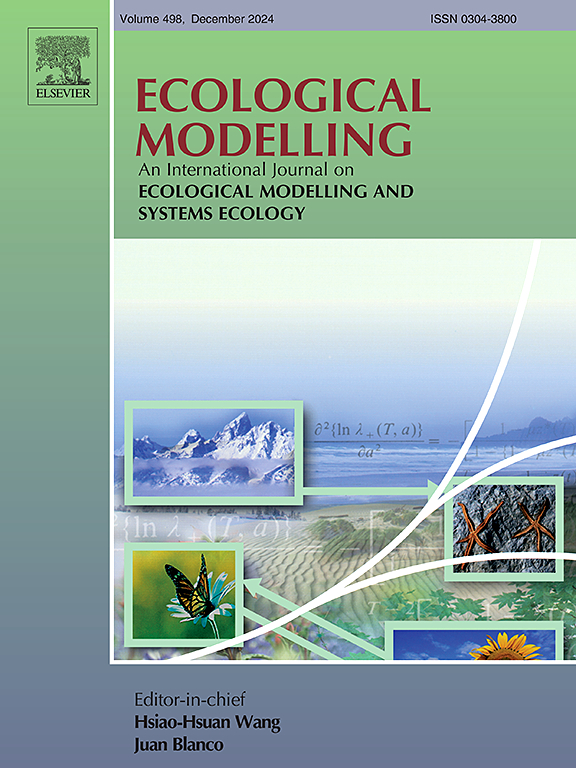城市代谢研究的测绘机构。基于代理人参与程度的城市级资源利用评估模型的系统特征
IF 3.2
3区 环境科学与生态学
Q2 ECOLOGY
引用次数: 0
摘要
多年来,工业生态学、社会生态学和城市生态学为开发、测试和验证城市规模的建模工具做出了贡献,这些工具有助于通过能源和材料交换来理解社会与自然的关系。这些工具可以从不同的角度跟踪和表示代谢过程,同时处理日益复杂的数据集。然而,很少有研究考察城市代谢模型如何纳入资源管理中行动者部署的不同形式的代理。此外,比较城市代谢研究中跨学科建模方法的综述仍然有限。为了解决这些差距,本研究探讨了工业、社会和城市生态学中的城市级建模传统是否以及在多大程度上可以系统地代表媒介如何影响代谢储量和流量。首先,对这三个学科中以计算模型和数学模型为重点的城市代谢研究进行了系统的文献综述。其次,根据模型在建模过程中如何使用“代理”概念和代表代谢代理来比较模型。最后,对这些模型进行了系统的描述,强调了它们在解决代理问题方面的差异和互补性。结果表明,MFA是最全面的模型,适用于所有学科和参与水平,有9个不同的“代理人”术语,而SD、WB、CA和EFA是最不全面的,仅限于单一学科和一个级别的一个代理人术语。这一特征为未来城市代谢研究中选择和耦合模型提供了综合决策框架的基础。本文章由计算机程序翻译,如有差异,请以英文原文为准。
Mapping agency in urban metabolism research. A systematic characterisation of urban-level resource-use assessment models based on levels of engagement with agents
For several years, industrial, social, and urban ecology have contributed to developing, testing, and validating city-scale modelling tools that help understand society-nature relationships through energy and material exchanges. These tools can track and represent metabolic processes from different perspectives while handling increasingly complex datasets. However, few studies have examined how urban metabolism models incorporate different forms of agency deployed by actors in resource management. Additionally, reviews comparing modelling approaches across disciplines in urban metabolism research remain limited. To address these gaps, this study explores whether and to what extent urban-level modelling traditions in industrial, social, and urban ecology can systematically represent how agents influence metabolic stocks and flows. First, a systematic literature review of urban metabolism studies focusing on computational and mathematical models is conducted across these three disciplines. Second, models are compared based on how they engage with the concept of “agency” and represent metabolic agents in the modelling process. Finally, a systematic characterisation of these models is provided, highlighting their differences and complementarities in addressing agency. The results show that MFA is the most comprehensive model, applied across all disciplines and engagement levels with nine different terms for “agents,” whereas SD, WB, CA, and EFA are the least comprehensive, limited to a single discipline and one agent term at one level. This characterisation provides a foundation for developing integrated decision-making frameworks for selecting and coupling models in future urban metabolism research.
求助全文
通过发布文献求助,成功后即可免费获取论文全文。
去求助
来源期刊

Ecological Modelling
环境科学-生态学
CiteScore
5.60
自引率
6.50%
发文量
259
审稿时长
69 days
期刊介绍:
The journal is concerned with the use of mathematical models and systems analysis for the description of ecological processes and for the sustainable management of resources. Human activity and well-being are dependent on and integrated with the functioning of ecosystems and the services they provide. We aim to understand these basic ecosystem functions using mathematical and conceptual modelling, systems analysis, thermodynamics, computer simulations, and ecological theory. This leads to a preference for process-based models embedded in theory with explicit causative agents as opposed to strictly statistical or correlative descriptions. These modelling methods can be applied to a wide spectrum of issues ranging from basic ecology to human ecology to socio-ecological systems. The journal welcomes research articles, short communications, review articles, letters to the editor, book reviews, and other communications. The journal also supports the activities of the [International Society of Ecological Modelling (ISEM)](http://www.isemna.org/).
 求助内容:
求助内容: 应助结果提醒方式:
应助结果提醒方式:


